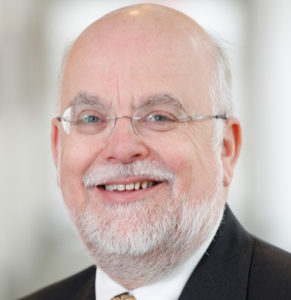
Responding to the Questions of Uncertainty Online
As everyone moved to online teaching and learning in mid-March, our faculty and students made the leap of faith onto various platforms. Faculty had to get ready over a weekend for synchronous teaching via Zoom (including Shabbat on which technology is not commonly used) so that the following week, fulltime ordination students would have their regular classes available (including our daily Beit midrash [collaborative exegesis seminar] and daily prayer). There was technology to set up, faculty to train on the technology, as well as the individual concerns and varieties of teaching. Students needed to be directed and advised, not to mention the current asynchronous online students on a different platform. These students were used to online learning, but now had children and work responsibilities at home and were separated from their usual equipment, resources, and books. In addition, a wonderful rabbinic colleague had just passed away from Covid-19 leaving a bereft family and congregation.
It was a massive effort that week, so you can imagine how I felt at the end of that week when a faculty member suggested we offer a community-sustaining opportunity for our educators and students. She envisioned bringing people together, lowering the frenetic atmosphere, and offering pedagogic and spiritual resources to those who were leading their own institutions. It took some persuading, but gathering my last ounce of energy, I saw the wisdom of her proposal and agreed to teach the first session on the Monday before Passover. Knowing that Passover was about to commence for our community gave us that extra impetus to offer a message of comfort, hope, and promise of liberation to those who would be working through the holiday season.
Come Monday morning, we commenced with a simple Hinneni–‘Here I am’ like Moses at the burning bush in the wilderness. It was a wonderful opportunity to connect and breathe together as colleagues, fellow Jewish educators, and students. Then I taught the midrash of the four children of the Passover Haggadah reminding everyone that the midrash is based on four hypothetical biblical children’s questions, three of which (the wayward, willing, and wondering) come before the event of the Exodus in chapter 13. Their questions of uncertainty and anxiety are the same questions we have about our current situation and they need response from our spiritual resources of hope and healing. The fourth biblical child (wise) comes to ask his/her question once the whole experience is over. A reflection on experience, the question (derived from a verse in Deuteronomy 6), requires we respond in a different theological way, as does the Deuteronomist.
That learning was followed by a colleague inviting participants to reflect together about our questions of uncertainty. This colleague used the framework of the Gibbs cycle of reflective action--encouraging the expression of feelings around decision-making and personal and professional circumstances. It was a cathartic experience for the participants and it lifted the burdens upon us. Now we were a community of educators looking to each other and to our tradition of text and ritual for sustenance and healing. All my hesitations about this additional time online fell away as I realized that this was probably the most important spiritual solace we had had all week. We were also modelling a pedagogic practice for the participants to emulate with their own communities.
After 75 minutes, we had a final moment of nehemta–a concluding spiritual expression of hope. One of our cantorial students introduced a piece of modern liturgical music by saying, “This is for you, our teachers who are on the front line of providing essential spiritual service.”
The words of Debbie Friedman, beloved Jewish singer songwriter, melodiously flowed from his guitar:
For our teachers and their students
And for the students of their students
We ask for peace and lovingkindness, and let us say: Amen.
And for those who study Torah here and everywhere
May they be blessed with all they need, and let us say: Amen.
It was tranquil, contemplative, and uplifting. It was a selection (Kaddish de’Rabbanan) that traditionally marks a culmination of Torah study or the death of a Torah scholar. This time it did both. We then bid each other goodbye as we unmuted and wished each other a ‘fulfilling Pesach of enacted freedom.’
I very quickly wrote to my colleague, “Brilliant! When are we doing the next one!”
“For our teachers” is now a biweekly webinar, an act of hope in a time of uncertainty.
Leave a Reply